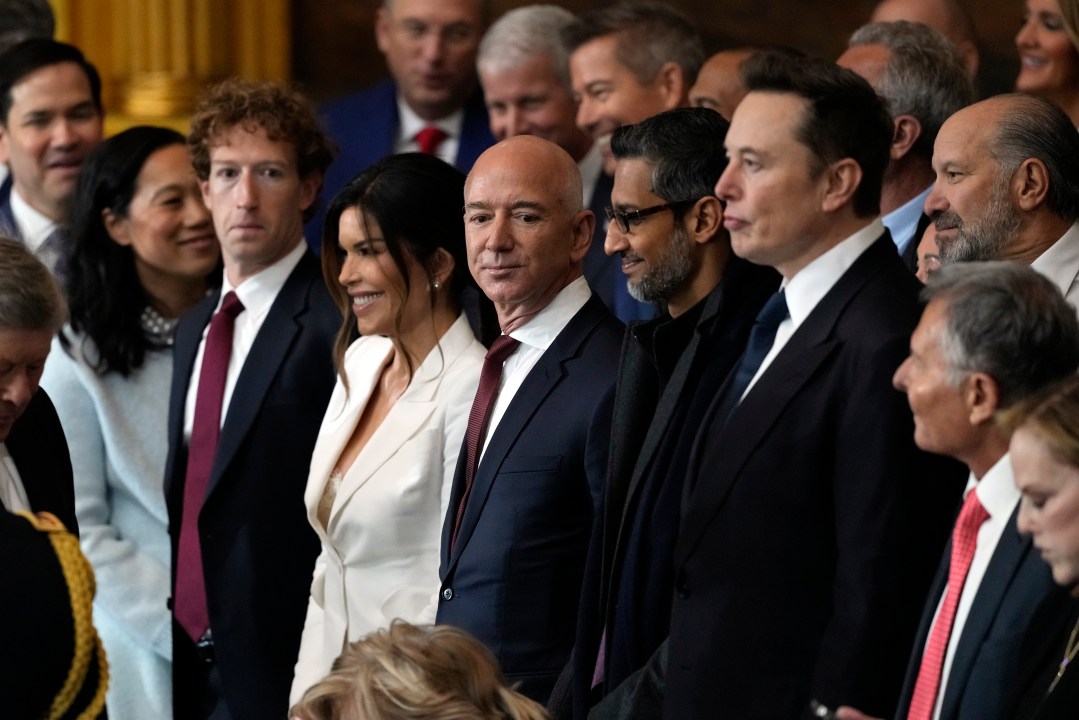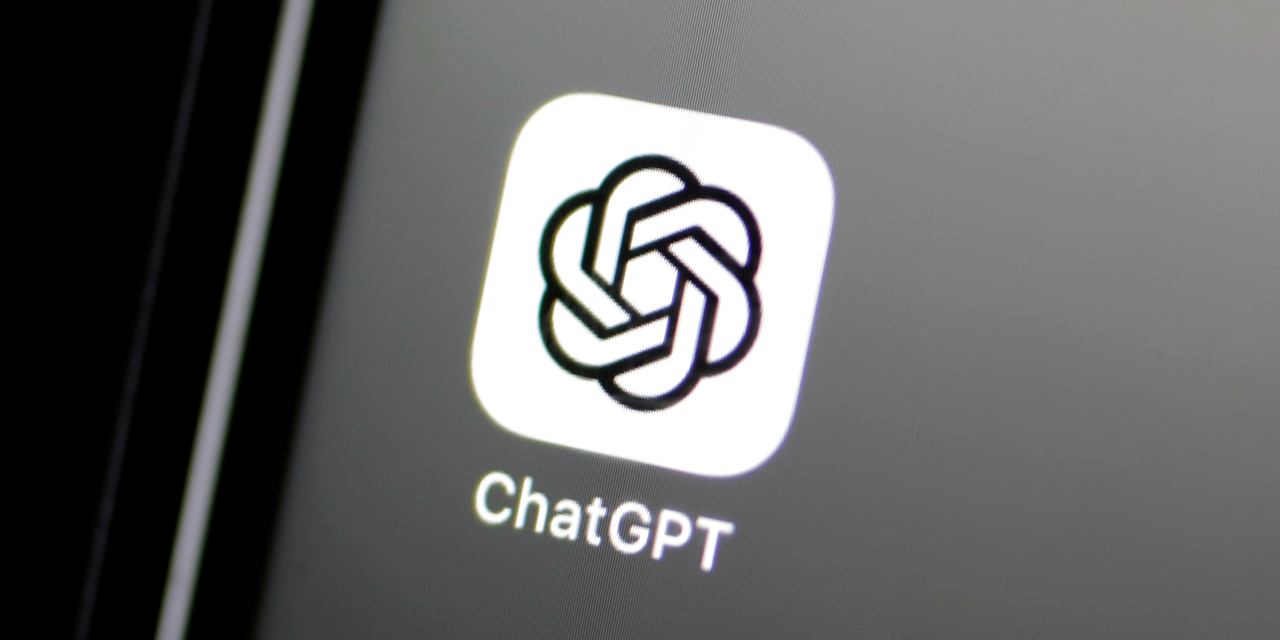The Zuckerberg-Trump Dynamic: Implications For Tech And Governance

Table of Contents
Facebook's Role in the 2016 Election and Beyond
The 2016 US presidential election highlighted the significant role social media platforms, particularly Facebook, play in modern political campaigns and the dissemination of information – or misinformation. The Zuckerberg-Trump dynamic, in this context, is inextricably linked to the platform's influence on the election's outcome and its ongoing effects on political discourse.
The Cambridge Analytica Scandal and its Fallout
The Cambridge Analytica scandal exposed the vulnerability of user data on Facebook and its potential misuse for political manipulation. This scandal, involving the harvesting of personal data from millions of Facebook users without their consent and its subsequent use in targeted political advertising during the 2016 election, significantly damaged Facebook's reputation and triggered increased regulatory scrutiny globally.
- Data Privacy Violations: The scandal revealed serious flaws in Facebook's data privacy practices and highlighted the lack of robust mechanisms to protect user information.
- Targeted Advertising Concerns: The use of harvested data for highly targeted advertising raised concerns about the potential for manipulation and the erosion of democratic processes.
- Regulatory Backlash: The scandal led to numerous investigations and fines, underscoring the growing need for stricter regulations on data privacy and the use of personal data in political campaigns. The lasting impact includes increased public awareness of data privacy issues and a more stringent regulatory environment for social media companies.
The Spread of Misinformation and Political Polarization
Facebook's algorithms, designed to maximize engagement, inadvertently contributed to the spread of misinformation and the amplification of political polarization during the 2016 election and beyond. The ease with which false or misleading information could be shared and amplified on the platform had a significant impact on public opinion and political discourse.
- Algorithmic Amplification: Facebook's algorithms prioritize engagement, often favoring sensational and emotionally charged content, including misinformation, over factual information.
- Echo Chambers and Filter Bubbles: These algorithms can create echo chambers and filter bubbles, reinforcing pre-existing biases and limiting exposure to diverse perspectives.
- Combating Misinformation: While Facebook has implemented measures to combat misinformation, such as fact-checking partnerships and content removal policies, the effectiveness of these measures remains a subject of ongoing debate. The effectiveness of these measures in addressing the core issues raised by the Zuckerberg-Trump dynamic is still under question.
Trump's Use of Facebook and its Impact on his Presidency
Donald Trump’s strategic use of Facebook for direct communication with supporters played a significant role in his presidential campaign and throughout his presidency. This direct-to-consumer approach bypassed traditional media outlets and allowed him to cultivate a loyal base and control the narrative.
- Direct Engagement with Supporters: Trump utilized Facebook to share his messages directly with his supporters, bypassing traditional media filters.
- Campaign Communication Strategy: Facebook became a central tool for his campaign, enabling targeted advertising and rapid dissemination of information.
- Implications for Transparency and Accountability: The use of social media by a president raises concerns about transparency and accountability, as it allows for direct communication without the scrutiny of traditional media. The Zuckerberg-Trump dynamic illustrated the potential for this type of direct communication to both empower and disenfranchise depending on the user's perspective.
The Regulatory Response to the Zuckerberg-Trump Dynamic
The Zuckerberg-Trump dynamic significantly accelerated the global regulatory response to the power and influence of Big Tech. Governments worldwide are grappling with the challenges of regulating social media platforms effectively while protecting free speech and promoting democratic values.
Increased Scrutiny of Big Tech
The events surrounding the 2016 election and the Cambridge Analytica scandal led to increased scrutiny of Facebook and other tech giants. Governments are now actively considering and implementing regulations to address concerns about data privacy, antitrust issues, and content moderation.
- Data Privacy Regulations: New regulations, such as the GDPR in Europe and CCPA in California, aim to protect user data and grant individuals more control over their personal information.
- Antitrust Concerns: Concerns about the monopolistic power of Big Tech companies have led to antitrust investigations and potential breakups.
- Content Moderation Debates: The debate over content moderation policies highlights the challenges of balancing free speech with the need to prevent the spread of harmful content.
Section 230 and its Future
Section 230 of the Communications Decency Act in the US has been a central point of contention in the debate over online platform regulation. This section protects online platforms from liability for user-generated content. The Zuckerberg-Trump dynamic has amplified the debate on its reform or repeal.
- Liability Protection: Section 230 provides crucial legal protection for online platforms, allowing them to moderate content without being held responsible for everything users post.
- Reforming or Repealing Section 230: There are ongoing debates about reforming or repealing Section 230, driven by concerns about misinformation, hate speech, and the spread of harmful content.
- Consequences for Free Speech and Online Safety: Changes to Section 230 could have significant consequences for free speech and online safety, potentially impacting the ability of platforms to moderate content effectively.
International Implications
The Zuckerberg-Trump dynamic has had far-reaching international implications, influencing the global regulatory landscape for social media. Different countries are adopting diverse approaches to regulating social media, reflecting varying political and cultural contexts.
- Global Regulatory Landscape: The impact of the scandal and the subsequent regulatory response has influenced the development of data privacy regulations and content moderation policies in many countries worldwide.
- Varying Approaches to Regulation: Different countries have adopted different approaches to regulating social media, reflecting their unique political and social contexts.
- Potential for International Cooperation: There is a growing need for international cooperation to develop effective strategies for regulating tech platforms and addressing the global challenges posed by the Zuckerberg-Trump dynamic.
Long-Term Implications for Democracy and Governance
The long-term implications of the Zuckerberg-Trump dynamic for democracy and governance are profound and far-reaching. The events of 2016 and their aftermath have raised serious questions about the future of online discourse, political engagement, and public trust in institutions.
The Erosion of Trust in Institutions
The spread of misinformation and political polarization, fueled by social media, has contributed to a decline in public trust in traditional media outlets and government institutions. The Zuckerberg-Trump dynamic exemplifies how social media can be used to erode trust and sow division.
- Impact of Misinformation: The spread of false or misleading information undermines public trust in institutions and makes it difficult to distinguish between fact and fiction.
- Amplifying Distrust and Division: Social media platforms can amplify distrust and division, contributing to political polarization and social unrest.
- Strategies to Rebuild Trust: Rebuilding trust requires a multi-faceted approach involving media literacy education, fact-checking initiatives, and promoting responsible social media use.
The Future of Online Discourse and Political Engagement
The challenges of fostering healthy online discourse and meaningful political engagement in the age of social media are significant. The Zuckerberg-Trump dynamic highlighted the urgent need to address the negative impacts of social media on politics.
- Challenges of Online Discourse: The online environment can be toxic and prone to polarization, making it difficult to have constructive conversations and engage in productive political debate.
- Solutions for Mitigating Negative Impacts: Strategies to mitigate the negative impacts include promoting media literacy, developing better content moderation policies, and fostering a culture of respectful dialogue.
- Long-Term Implications for Democratic Governance: The Zuckerberg-Trump dynamic underscores the need for ongoing efforts to ensure that social media platforms are used responsibly and do not undermine democratic values.
Conclusion
The Zuckerberg-Trump dynamic represents a pivotal moment in the relationship between technology and governance. The impact of this interplay extends far beyond the 2016 election, shaping debates about data privacy, misinformation, and the future of democratic discourse. Understanding this complex relationship is crucial for navigating the challenges and opportunities presented by the ever-evolving digital landscape. Further research and ongoing discussion are essential to address the lasting implications of the Zuckerberg-Trump dynamic and to develop effective strategies for promoting responsible technology use and safeguarding democratic processes. We must critically examine this dynamic to ensure a more transparent, accountable, and informed future for all.

Featured Posts
-
 Limited Stock Boston Celtics Finals Gear Under 20
May 17, 2025
Limited Stock Boston Celtics Finals Gear Under 20
May 17, 2025 -
 Exclusive Knicks Fan Wants Jalen Brunson On Lady Liberty Statue
May 17, 2025
Exclusive Knicks Fan Wants Jalen Brunson On Lady Liberty Statue
May 17, 2025 -
 Federal Student Loan Refinancing What You Need To Know
May 17, 2025
Federal Student Loan Refinancing What You Need To Know
May 17, 2025 -
 Open Ai And Chat Gpt Under Federal Trade Commission Investigation
May 17, 2025
Open Ai And Chat Gpt Under Federal Trade Commission Investigation
May 17, 2025 -
 Serious Injury Clouds Angel Reeses Dpoy Celebration
May 17, 2025
Serious Injury Clouds Angel Reeses Dpoy Celebration
May 17, 2025
